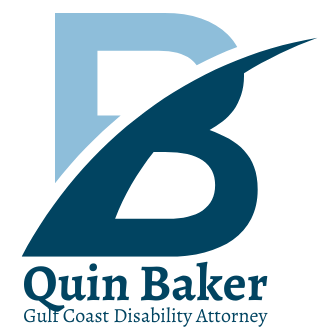Considerations When Applying for Social Security Disability for PTSD
People with PTSD may qualify for Social Security disability benefits, but they are often discouraged from doing so because of the reputation the SSA has. It’s widely known that most SSDI applications get denied the first time around, and there’s a widely held belief that it’s nearly impossible to get benefits for a mental health issue.
While getting SSDI for PTSD does require some work, documentation, and time, it is far from impossible—especially with a strong legal team by your side. Call Baker & Baker at 850-433-0888 to schedule a consultation now.
How PTSD Can Negatively Impact Your Work
Post-traumatic stress disorder can have a negative effect on every area of your life, so it’s no surprise that it can be detrimental to your work as well. It generally follows a very traumatic event, such as abuse, time spent in military combat, sexual assault, or a violent attack. While it generally sets in within three months after an incident, it may take longer.
The mental effects of PTSD are enough to influence your work in a negative way. Symptoms include extreme feelings of guilt and hopelessness, difficulty concentrating, poor memory, difficulty sleeping, and severe anxiety. These symptoms put a tremendous burden on your mind, making it difficult to focus on work or otherwise be productive.
When you consider the ways that PTSD manifests physically, it’s even more clear how your work may be affected. People with PTSD may experience flashbacks that cause them to freeze or hide, demonstrate unexpected anger or irritability, cry unexpectedly, or behave inappropriately in certain situations.
PTSD in the SSA Blue Book
In the SSA Listing of Impairments, also known as the Blue Book, there is a listing that covers PTSD. Listing 12.15 is for trauma- and stressor-related disorders. There are several requirements you must meet to get SSDI benefits under this listing.
You must have been exposed to a threatened death, the death of someone else, a serious injury, or violence. It must be followed by involuntary instances of reliving the moment, avoidance of stimuli that make you think of the event, mood and behavior disturbances, and changes in arousal and reactivity.
On top of that, you have to prove severe or extreme limitations in several different areas. You can qualify with an extreme limitation in one of the following areas or two marked limitations:
- Adapting or managing yourself
- Interacting with others
- Task concentration
- Learning, understanding, and utilizing new information
What if you have taken steps to protect yourself from triggering stimuli by staying in a protected and safe environment? You may qualify if your PTSD has persisted for at least two years, you are undergoing mental health therapy or other treatment, and your adaptation to your diagnosis is fragile.
Still don’t meet these qualifications? As is the case with any disability that doesn’t neatly tick the boxes of the Blue Book, you can undergo a medical-vocational allowance assessment to see if you can receive benefits.
Documenting Your PTSD for Your SSDI Application
Documentation is king when it comes to an SSDI application. The SSA approaches each case with the expectation of having the applicant’s disability fully and completely proven through multiple types of documentation.
You’ll want paperwork showing any outpatient or inpatient treatment you’ve received for your PTSD diagnosis, proof of your initial diagnosis, treatment plans that you have tried, and evidence of the ways in which your diagnosis has affected you.
It may help to talk to your doctor or mental healthcare provider about your SSDI application, as they may be able to provide documentation that is useful for your application. Specifically, the SSA may look for evidence that you have difficulty with any of the areas listed in the Blue Book. If you have been written up at work for inappropriate behavior or speech, been sent home because of flashbacks or other incidents, or otherwise lost out on pay because of diagnosis, that will likely be very useful.
Find Out How We Can Help with Your Disability Claim
Hiring a Social Security disability attorney is one of the best things you can do as you begin applying for benefits. Our extensive knowledge of the application process and what the SSA looks for can help you feel confident that you are submitting the strongest application possible. Call us at 850-433-0888 or fill out our contact form





Leave a Reply
Want to join the discussion?Feel free to contribute!